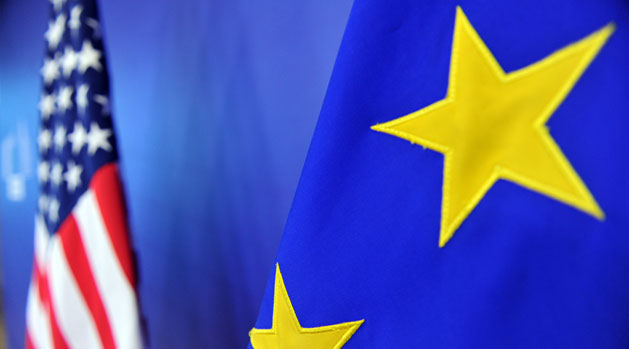European Commission accused of TTIP 'cover-up'
Documents published from Freedom of Information request – but almost all the content was redacted

A free daily email with the biggest news stories of the day – and the best features from TheWeek.com
You are now subscribed
Your newsletter sign-up was successful
The European Commission has sparked fresh controversy over its ongoing negotiations to secure a major trade deal with the US and Japan, after it heavily redacted documents relating to meetings with big tobacco companies.
The Independent reports that a number of documents were released by Catherine Day, secretary general of the European Commission, in reply to a freedom of information request by the research and campaign group Corporate Europe Observatory (CEO). But most were so heavily redacted as to render them meaningless, including one 14-page letter from British American Tobacco in May last year that sets out its "serious concerns with the consistency of [redacted]", in which all remaining content is blacked out. In some cases even the dates of meetings are censored.
Ms Day said she would not publish the documents in full as they "contain elements that relate to the Commission’s negotiating position with regards to tobacco". She said the public interest of transparency "does neither outweigh the public interest in protecting the Commission's international relations and decision-making process, nor the commercial interests of the companies in question in this case".
The Week
Escape your echo chamber. Get the facts behind the news, plus analysis from multiple perspectives.

Sign up for The Week's Free Newsletters
From our morning news briefing to a weekly Good News Newsletter, get the best of The Week delivered directly to your inbox.
From our morning news briefing to a weekly Good News Newsletter, get the best of The Week delivered directly to your inbox.
One concern for critics of the treaty is a clause known as the Investor State Dispute Settlement (ISDS), which could allow tobacco companies to sue governments that attempt to introduce stringent anti-smoking legislation.
Marlboro maker Philip Morris used a comparable trade treaty to take legal action against Australia over mandatory plain cigarette packaging, in an ongoing case which few believe will succeed. It is also suing the UK over its incoming plain packaging rules in the High Court.
TTIP has been mired in controversy, with opponents claiming that it could affect public service provision and lower standards in areas such as food production. Labour leadership candidate Andy Burnham has said if he was leader he would not support the agreement without a number of guarantees about its scope.
A free daily email with the biggest news stories of the day – and the best features from TheWeek.com